- Download Price:
- Free
- Size:
- 0.2 MB
- Operating Systems:
- Directory:
- L
- Downloads:
- 721 times.
What is Libmime.dll? What Does It Do?
The size of this dll file is 0.2 MB and its download links are healthy. It has been downloaded 721 times already.
Table of Contents
- What is Libmime.dll? What Does It Do?
- Operating Systems Compatible with the Libmime.dll File
- How to Download Libmime.dll File?
- How to Fix Libmime.dll Errors?
- Method 1: Copying the Libmime.dll File to the Windows System Folder
- Method 2: Copying the Libmime.dll File to the Software File Folder
- Method 3: Doing a Clean Install of the software That Is Giving the Libmime.dll Error
- Method 4: Solving the Libmime.dll Error using the Windows System File Checker (sfc /scannow)
- Method 5: Getting Rid of Libmime.dll Errors by Updating the Windows Operating System
- Most Seen Libmime.dll Errors
- Dll Files Similar to the Libmime.dll File
Operating Systems Compatible with the Libmime.dll File
How to Download Libmime.dll File?
- First, click on the green-colored "Download" button in the top left section of this page (The button that is marked in the picture).

Step 1:Start downloading the Libmime.dll file - When you click the "Download" button, the "Downloading" window will open. Don't close this window until the download process begins. The download process will begin in a few seconds based on your Internet speed and computer.
How to Fix Libmime.dll Errors?
ATTENTION! Before continuing on to install the Libmime.dll file, you need to download the file. If you have not downloaded it yet, download it before continuing on to the installation steps. If you are having a problem while downloading the file, you can browse the download guide a few lines above.
Method 1: Copying the Libmime.dll File to the Windows System Folder
- The file you will download is a compressed file with the ".zip" extension. You cannot directly install the ".zip" file. Because of this, first, double-click this file and open the file. You will see the file named "Libmime.dll" in the window that opens. Drag this file to the desktop with the left mouse button. This is the file you need.
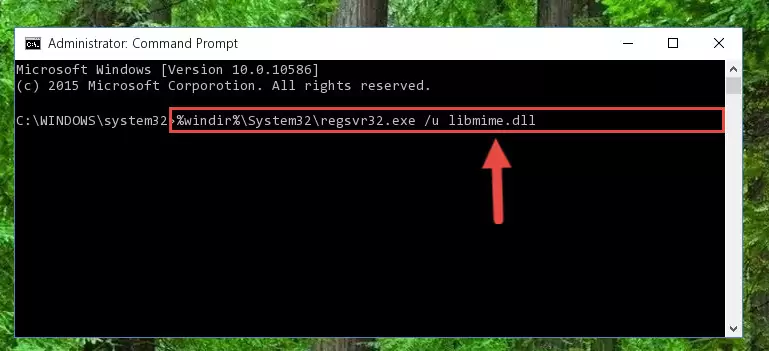
Step 1:Extracting the Libmime.dll file from the .zip file - Copy the "Libmime.dll" file you extracted and paste it into the "C:\Windows\System32" folder.
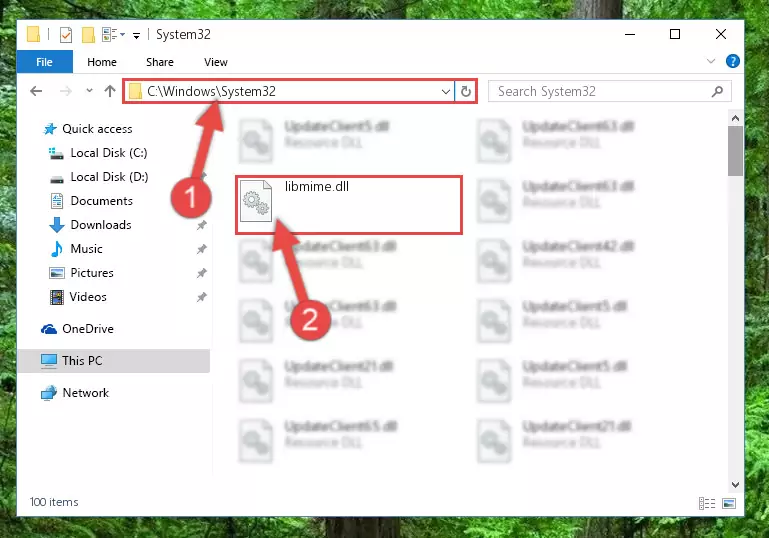
Step 2:Copying the Libmime.dll file into the Windows/System32 folder - If you are using a 64 Bit operating system, copy the "Libmime.dll" file and paste it into the "C:\Windows\sysWOW64" as well.
NOTE! On Windows operating systems with 64 Bit architecture, the dll file must be in both the "sysWOW64" folder as well as the "System32" folder. In other words, you must copy the "Libmime.dll" file into both folders.
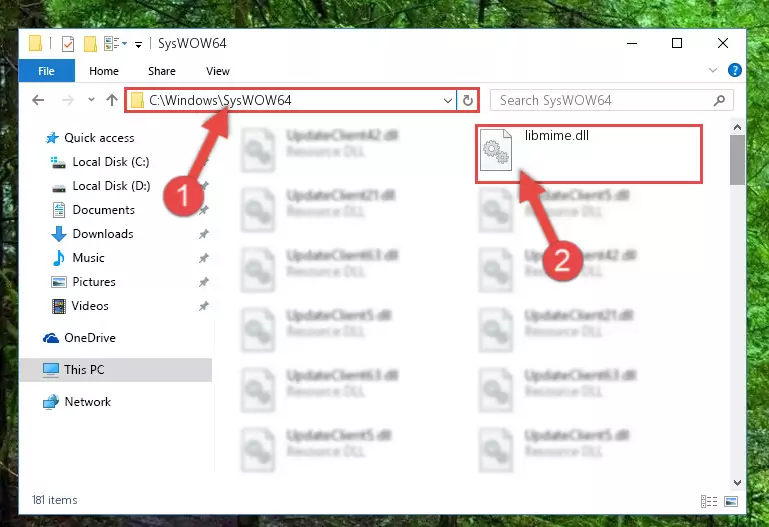
Step 3:Pasting the Libmime.dll file into the Windows/sysWOW64 folder - First, we must run the Windows Command Prompt as an administrator.
NOTE! We ran the Command Prompt on Windows 10. If you are using Windows 8.1, Windows 8, Windows 7, Windows Vista or Windows XP, you can use the same methods to run the Command Prompt as an administrator.
- Open the Start Menu and type in "cmd", but don't press Enter. Doing this, you will have run a search of your computer through the Start Menu. In other words, typing in "cmd" we did a search for the Command Prompt.
- When you see the "Command Prompt" option among the search results, push the "CTRL" + "SHIFT" + "ENTER " keys on your keyboard.
- A verification window will pop up asking, "Do you want to run the Command Prompt as with administrative permission?" Approve this action by saying, "Yes".
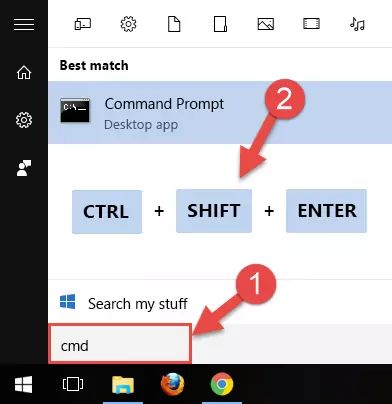
%windir%\System32\regsvr32.exe /u Libmime.dll
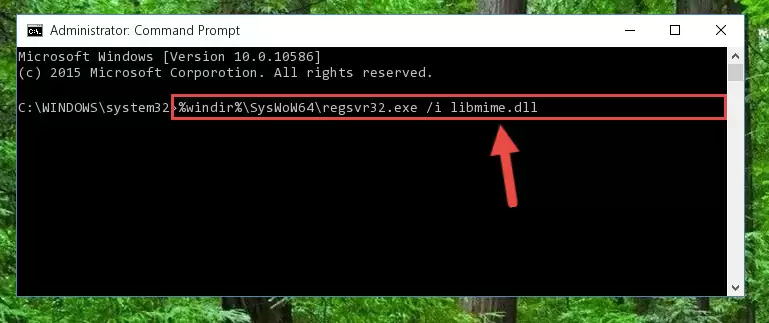
%windir%\SysWoW64\regsvr32.exe /u Libmime.dll
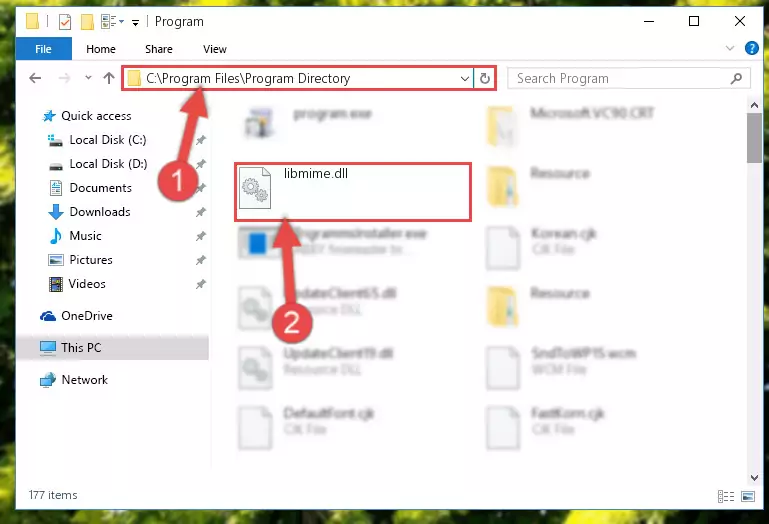
%windir%\System32\regsvr32.exe /i Libmime.dll
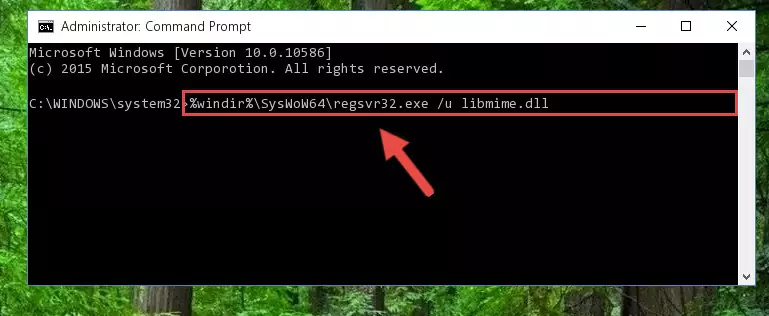
%windir%\SysWoW64\regsvr32.exe /i Libmime.dll
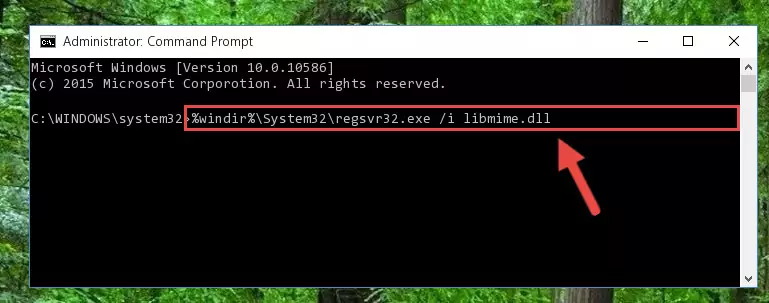
Method 2: Copying the Libmime.dll File to the Software File Folder
- First, you need to find the file folder for the software you are receiving the "Libmime.dll not found", "Libmime.dll is missing" or other similar dll errors. In order to do this, right-click on the shortcut for the software and click the Properties option from the options that come up.
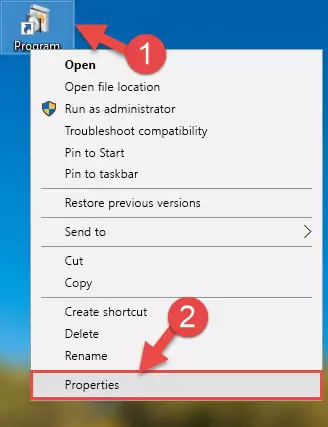
Step 1:Opening software properties - Open the software's file folder by clicking on the Open File Location button in the Properties window that comes up.
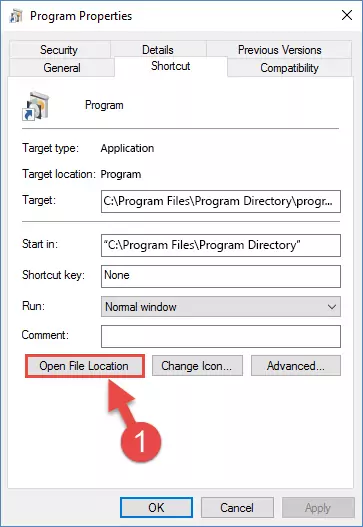
Step 2:Opening the software's file folder - Copy the Libmime.dll file into the folder we opened.
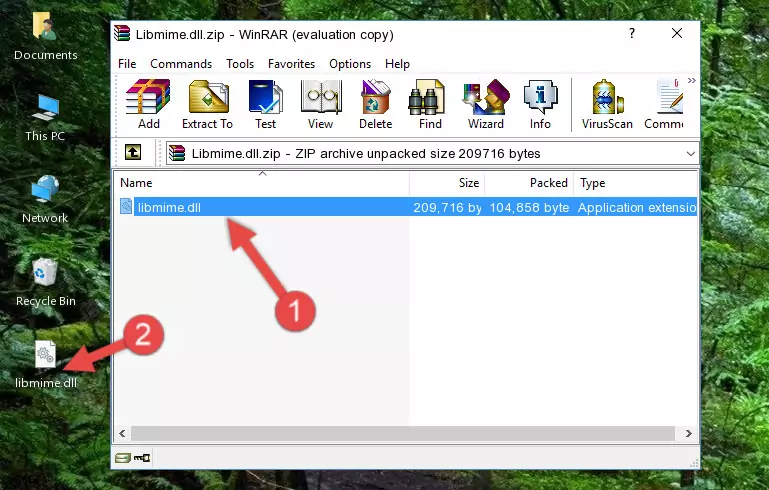
Step 3:Copying the Libmime.dll file into the file folder of the software. - The installation is complete. Run the software that is giving you the error. If the error is continuing, you may benefit from trying the 3rd Method as an alternative.
Method 3: Doing a Clean Install of the software That Is Giving the Libmime.dll Error
- Push the "Windows" + "R" keys at the same time to open the Run window. Type the command below into the Run window that opens up and hit Enter. This process will open the "Programs and Features" window.
appwiz.cpl
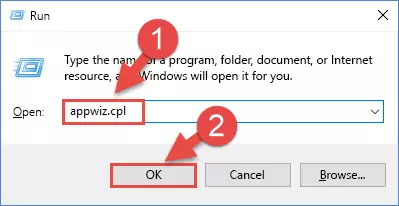
Step 1:Opening the Programs and Features window using the appwiz.cpl command - The Programs and Features window will open up. Find the software that is giving you the dll error in this window that lists all the softwares on your computer and "Right-Click > Uninstall" on this software.
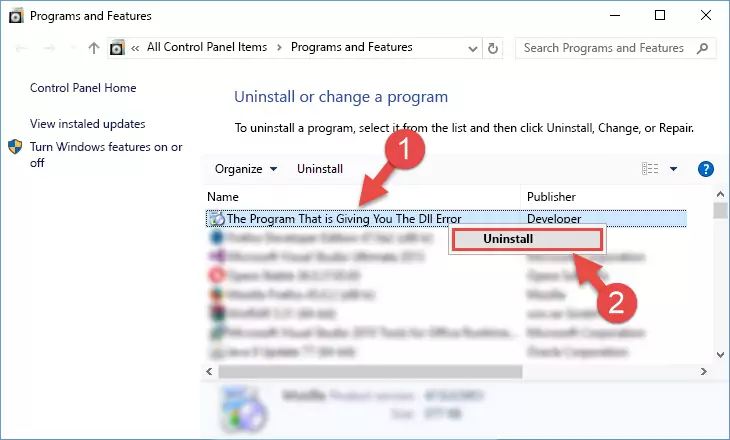
Step 2:Uninstalling the software that is giving you the error message from your computer. - Uninstall the software from your computer by following the steps that come up and restart your computer.
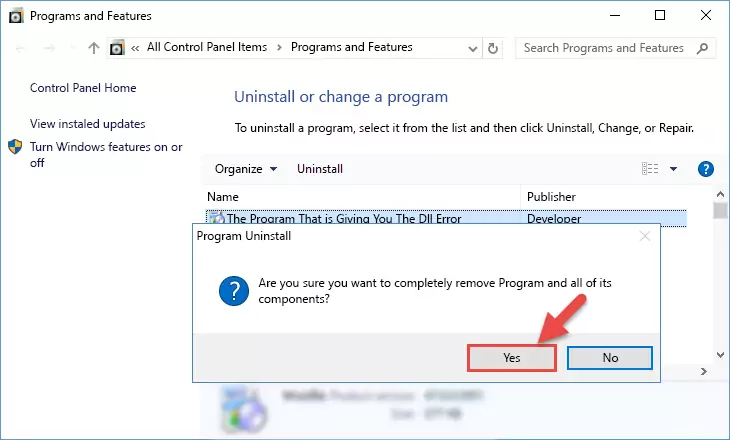
Step 3:Following the confirmation and steps of the software uninstall process - After restarting your computer, reinstall the software that was giving the error.
- You can solve the error you are expericing with this method. If the dll error is continuing in spite of the solution methods you are using, the source of the problem is the Windows operating system. In order to solve dll errors in Windows you will need to complete the 4th Method and the 5th Method in the list.
Method 4: Solving the Libmime.dll Error using the Windows System File Checker (sfc /scannow)
- First, we must run the Windows Command Prompt as an administrator.
NOTE! We ran the Command Prompt on Windows 10. If you are using Windows 8.1, Windows 8, Windows 7, Windows Vista or Windows XP, you can use the same methods to run the Command Prompt as an administrator.
- Open the Start Menu and type in "cmd", but don't press Enter. Doing this, you will have run a search of your computer through the Start Menu. In other words, typing in "cmd" we did a search for the Command Prompt.
- When you see the "Command Prompt" option among the search results, push the "CTRL" + "SHIFT" + "ENTER " keys on your keyboard.
- A verification window will pop up asking, "Do you want to run the Command Prompt as with administrative permission?" Approve this action by saying, "Yes".

sfc /scannow
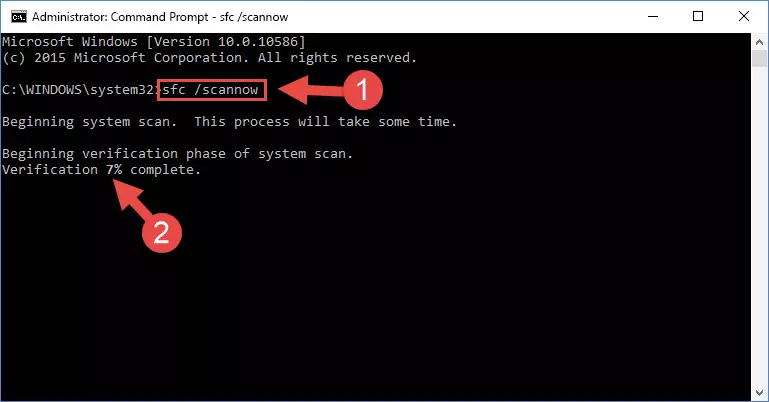
Method 5: Getting Rid of Libmime.dll Errors by Updating the Windows Operating System
Some softwares require updated dll files from the operating system. If your operating system is not updated, this requirement is not met and you will receive dll errors. Because of this, updating your operating system may solve the dll errors you are experiencing.
Most of the time, operating systems are automatically updated. However, in some situations, the automatic updates may not work. For situations like this, you may need to check for updates manually.
For every Windows version, the process of manually checking for updates is different. Because of this, we prepared a special guide for each Windows version. You can get our guides to manually check for updates based on the Windows version you use through the links below.
Explanations on Updating Windows Manually
Most Seen Libmime.dll Errors
If the Libmime.dll file is missing or the software using this file has not been installed correctly, you can get errors related to the Libmime.dll file. Dll files being missing can sometimes cause basic Windows softwares to also give errors. You can even receive an error when Windows is loading. You can find the error messages that are caused by the Libmime.dll file.
If you don't know how to install the Libmime.dll file you will download from our site, you can browse the methods above. Above we explained all the processes you can do to solve the dll error you are receiving. If the error is continuing after you have completed all these methods, please use the comment form at the bottom of the page to contact us. Our editor will respond to your comment shortly.
- "Libmime.dll not found." error
- "The file Libmime.dll is missing." error
- "Libmime.dll access violation." error
- "Cannot register Libmime.dll." error
- "Cannot find Libmime.dll." error
- "This application failed to start because Libmime.dll was not found. Re-installing the application may fix this problem." error
